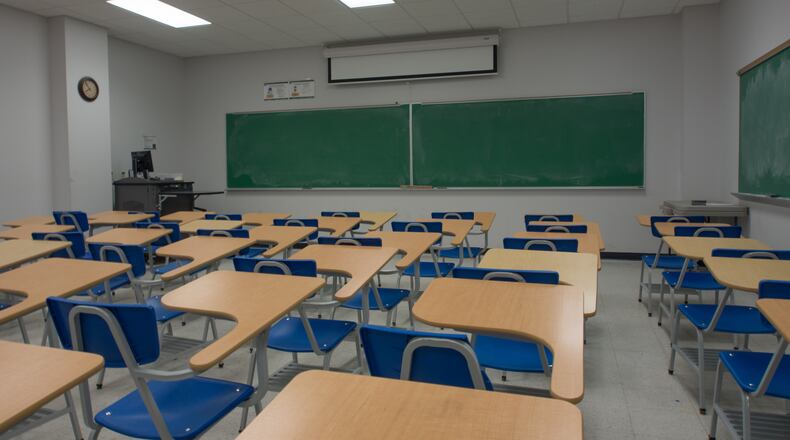A recent webinar explored troubling trends in teacher recruitment and retention, including chronic staff shortages in foreign languages, mathematics, science and special education. A fifth of teachers flee the classroom in their first five years of teaching.
“We have recognized at the Southern Regional Education Board — and our states have really been screaming for help — that we have to address the teacher shortages and really elevate the teacher profession in each state,” said Stephen Pruitt, president of SREB, which co-sponsored the panel with FutureEd and the EducationCounsel. “We see this as integrally part of ensuring a viable economy in the South and throughout the country.”
“The shortage is pretty scary across the whole country, especially in certain pockets and certain areas, and it is growing and it’s been growing for the past decade,” said Megan Boren, who works on teacher-workforce issues with the 16 states that belong to the Atlanta-based SREB, including Georgia.
Panelists suggested a slew of reasons why the profession is faltering, including barriers to entry, little autonomy, limited career ladders and low pay.
Here’s another possibility: The thrill is gone.
For many, teaching has become a spirit-destroying grind with dwindling rewards and escalating demands. The expectations on teachers are unrealistic, unsustainable and unreasonable. Over the last three decades, we’ve asked schools to be the antidote to every emerging societal ill, from child obesity to drug addiction to online bullying.
Along with teaching children to read, write and do math, we expect schools to produce empathetic human beings, model citizens and productive members of society. And also curtail teen pregnancies, provide up to three meals a day and, in the midst of the COVID-19 pandemic, address the surge in mental health disorders among America’s children.
Those goals are admirable, but schools lack the resources and personnel to fulfill them. For example, with the reopening of schools this year, it’s been recommended teachers conduct “wellness” checks with all their students to see how they’re faring. Nothing elaborate. Just a short “Hey, how are you” kind of thing.
Deputizing teachers into the service of student mental health makes sense until you pull out a calculator. The class rosters of many middle and high school teachers exceed 125 students. Allocating as little as two-and-a-half minutes a week to touch base with each student adds up to more than five hours a week. Those wellness checks are competing with the extra time needed to mediate learning losses caused by the pandemic.
And where do teachers turn when they spot worrisome signs in their students? Most Georgia high schools employ one counselor per 450 to 500 students. Even if parents can afford to pay for private mental health services for their kids, many metro therapists report they’re booked and not taking new patients.
Schools and teachers have also found themselves used as political fodder, falsely accused of teaching critical race theory, a complex legal framework at the level of 25-year-old law students rather than fifth graders. Politicians know CRT is not taught in K-12, but the issue packs school board meetings. So, craven politicians are willing to condemn CRT and “woke” teachers for votes, making it harder for educators to talk to students about the racism they experience.
Research suggests current recruitment lures, including signing bonuses, won’t be enough to keep teachers in classrooms. “Bonuses are somewhat effective as a recruitment strategy. They are not effective as a retention strategy. Because teachers want to be in a building with other teachers who want to be there and they want to work with supportive leaders,” said Sandi Jacobs of EducationCounsel and co-author of a new report on teacher shortages.
“There is a whole rethink we have to do around pay and on how we assign teachers,” said Jacobs. “That is going to lift up the profession, not these one-off attempts and Band-Aids that aren’t going to move us forward.”
Panelists said teachers witnessed the denigration of their abilities, dedication and professionalism in many recent policy debates, including during the pandemic when some parents argued they should have been forced to teach in-person, regardless of what the science advised.
All that “noise” undermines the desirability of the profession to those considering it and those already in it, said Boren. “Ultimately,” she said, “we really have to look at elevating the profession overall.”
About the Author
The Latest
Featured



